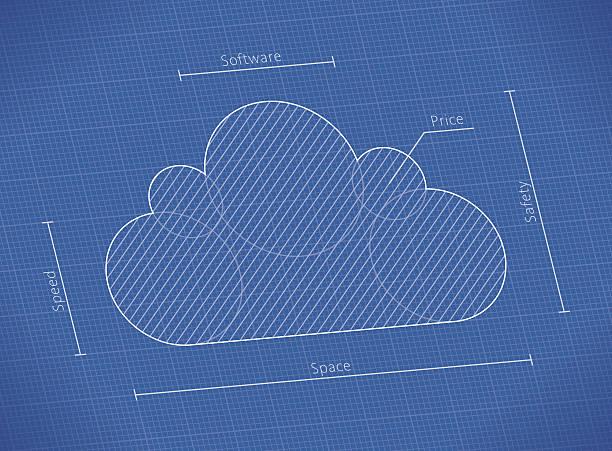Cloud architects have emerged with cloud computing. Cloud architects design, construct, and manage an organization’s cloud computing architecture. Remote Cloud Architects are in demand as remote work grows. This page discusses Cloud Architects, their duties, income alternatives, and where to find remote Cloud Architect jobs.
Cloud architects design, construct, and manage an organization’s cloud computing architecture. They collaborate with software developers, network engineers, and other IT experts build secure, scalable, and efficient cloud infrastructure. Cloud architects know Python, Java, AWS, Azure, and Google Cloud Platform.
A Cloud Architect designs the cloud infrastructure and manages its daily operations. They must monitor performance, resolve issues, and maintain cloud infrastructure. They collaborate with developers to optimize cloud-based apps.
Cloud architects must keep up with cloud computing developments. They must know industry best practices and be able to advise their company on cloud infrastructure improvements. They must also interact well with IT colleagues and stakeholders.
mmunicate effectively with other IT professionals and stakeholders within the organization.
Responsibilities of a Cloud Architect
A Cloud Architect is responsible for designing, implementing, and managing an organization’s cloud infrastructure and solutions. They play a crucial role in enabling businesses to leverage the benefits of cloud computing technologies effectively. Here are some common responsibilities of a Cloud Architect:
-
- Cloud Strategy and Planning: Develop a comprehensive cloud strategy aligned with the organization’s business objectives. Assess the existing IT infrastructure, applications, and workloads to determine the suitability for migration to the cloud. Identify the optimal cloud service models (such as Infrastructure as a Service, Platform as a Service, or Software as a Service) and cloud providers based on requirements.
-
- Cloud Architecture Design: Design the overall cloud architecture, including network design, security framework, data management, and integration patterns. Determine the appropriate cloud deployment models (public, private, hybrid, or multi-cloud) and design scalable, reliable, and cost-efficient cloud solutions.
-
- Cloud Infrastructure Implementation: Lead the implementation and deployment of cloud infrastructure and services. This involves provisioning and configuring cloud resources, setting up virtual networks, storage solutions, and defining access controls. Collaborate with DevOps teams to establish automated deployment and management processes.
-
- Security and Compliance: Ensure the security, privacy, and compliance of the cloud infrastructure and solutions. Implement appropriate security measures such as identity and access management, encryption, and vulnerability management. Stay updated with industry best practices and regulatory requirements to address security and compliance concerns.
-
- Cloud Migration and Integration: Develop migration strategies to transition on-premises systems and applications to the cloud. Plan and execute the migration process, considering factors like data transfer, application dependencies, and minimizing downtime. Integrate cloud services with existing systems, ensuring smooth data flow and interoperability.
-
- Performance Optimization and Cost Management: Optimize the performance and efficiency of cloud resources. Monitor and analyze cloud utilization, identify bottlenecks, and implement performance optimizations. Implement cost management strategies to optimize cloud spending, leveraging services like auto-scaling and reserved instances.
-
- Disaster Recovery and Business Continuity: Design and implement robust disaster recovery and business continuity plans for cloud environments. Define backup and recovery strategies, replication mechanisms, and perform regular testing to ensure data protection and system availability.
-
- Collaboration and Consultation: Collaborate with cross-functional teams, including developers, operations, and business stakeholders, to gather requirements, provide guidance, and ensure successful cloud adoption. Act as a consultant, advising on cloud technologies, industry trends, and best practices.
-
- Documentation and Governance: Maintain documentation of cloud architecture, design decisions, configurations, and operational procedures. Establish governance frameworks and policies to ensure adherence to cloud standards, security guidelines, and compliance requirements.
-
- Continuous Learning and Innovation: Stay updated with evolving cloud technologies, services, and industry trends. Continuously evaluate new cloud offerings and identify opportunities for innovation and optimization. Pursue relevant certifications and participate in professional development activities to enhance cloud architecture expertise.
Qualifications and Training to be Cloud Architect
To become a Cloud Architect, certain qualifications and training are typically required. Here are the key qualifications and training aspects for this role:
-
- Education: A bachelor’s degree in computer science, information technology, or a related field is often preferred. Some employers may consider candidates with equivalent work experience or relevant certifications.
-
- Cloud Platform Knowledge: Strong knowledge of various cloud platforms is essential, such as Amazon Web Services (AWS), Microsoft Azure, Google Cloud Platform (GCP), or others. Familiarity with different cloud service models (IaaS, PaaS, SaaS) and deployment models (public, private, hybrid, multi-cloud) is crucial.
-
- Cloud Certifications: Obtaining industry-recognized cloud certifications demonstrates expertise in specific cloud platforms and architectures. Examples include AWS Certified Solutions Architect, Microsoft Certified: Azure Solutions Architect, and Google Cloud Certified – Professional Cloud Architect.
-
- Technical Skills: Cloud Architects should possess a solid understanding of cloud computing concepts, virtualization, networking, storage, and security. Proficiency in programming languages like Python, Java, or PowerShell is beneficial. Knowledge of automation and infrastructure-as-code tools (such as Terraform or Ansible) is also valuable.
-
- Architecture Design and Patterns: Strong architectural design skills are essential for a Cloud Architect. Understanding cloud architecture patterns, such as microservices, serverless, and containerization, is important for designing scalable, reliable, and cost-efficient cloud solutions.
-
- Security and Compliance: Cloud Architects need a deep understanding of cloud security best practices and compliance requirements. Knowledge of identity and access management (IAM), encryption, network security, and regulatory standards (such as GDPR or HIPAA) is crucial for ensuring secure and compliant cloud environments.
-
- Experience: Hands-on experience in cloud infrastructure design, implementation, and management is highly desirable. Experience with cloud migration projects, cloud-native application development, and troubleshooting complex cloud environments demonstrates practical expertise.
-
- Communication and Collaboration Skills: Cloud Architects must possess strong communication and interpersonal skills. They need to effectively communicate technical concepts to both technical and non-technical stakeholders, collaborate with cross-functional teams, and provide guidance on cloud solutions.
-
- Analytical and Problem-Solving Skills: Cloud Architects should have strong analytical and problem-solving skills to analyze business requirements, assess technical challenges, and design optimal cloud solutions. They need to be able to evaluate trade-offs and make informed decisions.
-
- Continuous Learning: Cloud technologies and platforms are constantly evolving, so staying updated with the latest trends and advancements is crucial. Continuous learning through self-study, attending webinars, conferences, and pursuing relevant certifications is important for a Cloud Architect to remain current in their field.
Remember, the specific qualifications and training requirements may vary depending on the organization’s needs and the complexity of cloud solutions they utilize. It’s beneficial to research job listings and employer expectations to identify any additional qualifications or skills they may be seeking. Additionally, gaining practical experience through internships, personal projects, or working with cloud technologies in a professional setting can significantly enhance your qualifications as a Cloud Architect.
Average Salary for a Cloud Architect
According to Glassdoor, the average salary for a Cloud Architect is around $128,000 per year in the United States. However, this can vary depending on factors like experience, location, and the organization they work for.
Job Outlook for Cloud Architects
The rise of remote work has made it easier than ever to find remote Cloud Architect jobs. Here are some websites where you can find remote Cloud Architect jobs:
-
- Remote.co
-
- FlexJobs
-
- Indeed
-
- Upwork
The demand for Cloud Architects is on the rise as more organizations move their operations to the cloud. A Cloud Architect is responsible for designing, implementing, and managing an organization’s cloud computing architecture. With the rise of remote work, it is now easier than ever to find remote Cloud Architect jobs. If you are interested in a career in cloud computing, becoming a Cloud Architect may be a good option for you.










